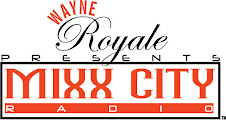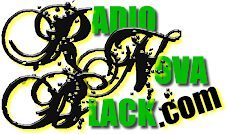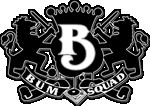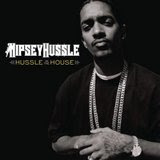 We found this article below to be right in line with this week's Money & Music Show, we hope these tips help you stay on track. If you missed this week's show...some new heat and great tips, sit back press play & step your game up.
We found this article below to be right in line with this week's Money & Music Show, we hope these tips help you stay on track. If you missed this week's show...some new heat and great tips, sit back press play & step your game up.MONEY & M
 USIC SHOW - GET YOUR FINANCIAL TIPS RIGHT HERE!
USIC SHOW - GET YOUR FINANCIAL TIPS RIGHT HERE!Systematic saving: The key to building a cash reserve
All it takes is one unexpected event, such as a costly auto repair, a broken furnace, a property tax hike or, worse yet, a job loss, to underscore the importance of a cash reserve. Maintaining a healthy cash reserve — one that equals at least six months' worth of your living expenses — can provide a cushion in case of an emergency and put you on track for long-term fiscal stability. But building such a reserve while simultaneously meeting your regular monthly expenses and paying down debt can be challenging.
If you're finding it tough to balance your saving goals with your spending habits, consider making your savings program automatic with a systematic plan.
What is systematic saving?
Simply put, systematic saving is the process of setting aside a specific amount of your income at regular intervals, whether weekly, biweekly or monthly. Rather than putting away money whenever you have some extra cash, or saving whatever is left after paying your monthly expenses, with systematic saving you pay yourself first and make building your cash reserve a priority. In effect, the amount you save on a regular basis becomes a budget item, with the same priority as your other monthly expenses, such as your mortgage, insurance and utilities. When you make your savings plan automatic, you’re more likely to succeed as a saver because you can avoid the temptation to spend your extra cash.
Where can I find extra money to save?
Before you implement your systematic savings plan, you may want to take steps to free up extra dollars. Here are a few options to consider:
* Refinance your mortgage. Mortgage rates remain historically low, potentially making it an ideal time to refinance your home loan. If you qualify and can lock in a lower interest rate, you can use the savings to build up your cash reserve.
* Set aside your raise or bonus. If you're expecting a salary increase, treat it as a "raise" for your savings plan. Similarly, if a bonus is in your future, resist the urge to splurge and instead deposit your windfall into your cash reserve.
* Review your federal income-tax withholding. Make sure your federal withholding is appropriate for your income and family size. Having too much money withheld from every paycheck means Uncle Sam gets to use your money throughout the year rather than you.
* Save your tax refund. Tax season is right around the corner. If you’re due a refund, consider depositing all or a portion of it into your savings account. Also, if your refund is substantial, you may be having too much money withheld from your paychecks — money you could be saving on a regular basis in your cash reserve.
* Shop around for lower insurance rates. When your auto and home insurance policies are up for renewal, take the opportunity to shop around for better rates. The savings could be substantial, giving you another way to increase your cash reserve.
Make saving automatic and hassle-free
To work systematic saving into your plan, make an arrangement with your employer or financial institution to transfer a specified amount of money from your paycheck, checking or investment account to a cash reserve at regular intervals. That way you don't have to worry about taking action on your own.
There are many ways you can systematically save. Here are just three options to consider:
Payroll savings plans
A key feature of many employer benefit plans is a payroll savings plan. With this type of systematic savings plan, you can ask your employer to withhold a designated amount of money from each paycheck and automatically deposit it into a specified account — similar to how an employer-sponsored retirement account is managed. Depending on your employer's payroll savings plan, the account may be at your bank (e.g., checking or savings account), a credit union or other financial institution (e.g., a brokerage account). You're generally free to change the dollar amount withheld as you see fit and stop the withholding at your discretion.
Automatic bank account transfers
Most banks and credit unions let you set up automatic transfers between your checking account and higher-yielding savings or money market deposit accounts. So your checking account would serve as the hub for automatic transfers into your savings, money market and/or other designated cash reserve account.
Financial account alternatives
Similarly, most financial institutions, brokerage firms and mutual fund companies give you the ability to automatically transfer money between their different savings and investment vehicles. For example, if you have a high-yield brokerage checking account or a money market mutual fund account, you can automatically transfer a specific amount from the account into one or more stock or bond mutual fund accounts or individual securities. Of course, if you're looking to enhance your cash reserve, you should first discuss with your financial advisor which funds or securities are most appropriate for this strategy.
Brokerage firms and mutual fund companies offer another way to enhance your cash reserve: dividend reinvestment. Specifically, you may be able to have the dividends and earnings from your mutual fund accounts automatically deposited into your money market mutual fund or brokerage checking account, rather than reinvesting those earnings back in the fund.
Likewise, if you own individual securities that pay regular dividends, such as Treasury notes or bonds, you may be able to have those dividends directly deposited into your designated cash reserve account. Of course, keep in mind that investment distributions are subject to taxation, so consult your tax or investment advisor before implementing such a plan.
It's important to keep in mind an important difference between bank accounts and most brokerage and mutual fund accounts. Bank checking and deposit accounts are insured by the Federal Deposit Insurance Corporation (FDIC) for up to $250,000 per depositor, per ownership category (e.g., individual account, joint account, etc.) until December 31, 2013 (FDIC deposit insurance has been temporarily increased from $100,000 to $250,000 per depositor through this date). Most brokerage and mutual fund accounts do not offer such insurance.
Start paying yourself now with a systematic savings plan
Accumulating a healthy cash reserve can help put you on the path to a more financially secure future, where unexpected expenses and financial emergencies don’t trigger monetary mayhem. Putting away a set amount of money automatically and at regular intervals ensures a portion of your income always supports your long-term savings plan, keeping you prepared for life’s inevitable financial emergencies — and opportunities.
Your financial advisor can help you evaluate systematic savings opportunities and implement the strategy most appropriate for your financial situation.
An investment in money market funds is not insured or guaranteed by the Federal Deposit Insurance Corporation or any other government agency. Although the Fund seeks to maintain the value of your investment at $1.00 per share, it is possible to lose money by investing in the Fund.
Investors should consider the investment objectives, risks, charges and expenses of a mutual fund carefully before investing. The prospectus contains this and other important information about the funds and should be read carefully before investing.
To View this Article and other Related Topics
CLICK HERE
till next week...


.jpg)



.jpg)







.jpg)




.jpg)





.jpg)

.jpg)






































.jpg)



No comments:
Post a Comment